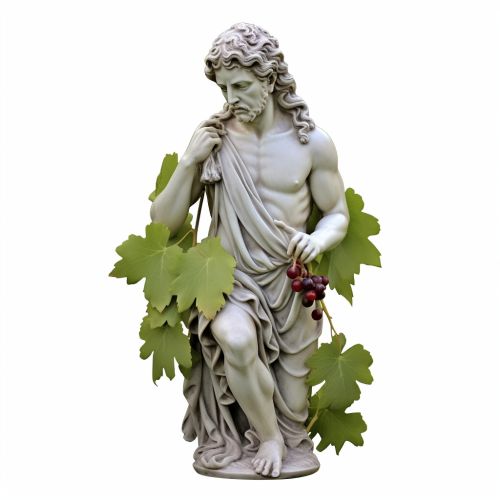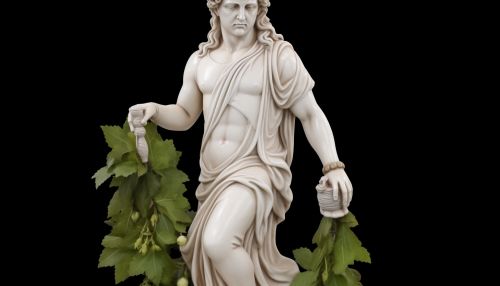Dionysus
Origins
Dionysus, also known by his Roman name Bacchus, is a god in Ancient Greek and Roman mythology. He is the god of the grape-harvest, winemaking, and wine, of fertility, ritual madness, religious ecstasy, and theatre. Dionysus is one of the twelve Olympians, the major deities of the Greek pantheon, and was considered to be the last to join these divine figures.


Mythology
Dionysus is a complex figure in Greek mythology, with several different origin stories. The most common is that he is the son of Zeus, the king of the gods, and Semele, a mortal woman. However, other myths suggest that Dionysus was the son of Zeus and Persephone, the queen of the underworld. Regardless of his parentage, Dionysus is often depicted as an outsider, a god who is not a part of the traditional Greek pantheon, but who is nonetheless a powerful and important deity.
Worship and Cult
The worship of Dionysus was a major part of ancient Greek religion, and his cult was widespread throughout the Greek world. Dionysian worship was characterized by ecstatic and frenzied rituals, including the consumption of wine and other intoxicants, dancing, and music. The followers of Dionysus, known as Bacchae or Maenads, were primarily women, although men were also known to participate in Dionysian rites.
Dionysus in Literature
Dionysus is a prominent figure in Greek literature, particularly in the works of the playwright Euripides. His most famous appearance is in the tragedy "The Bacchae," in which he returns to his birthplace of Thebes and punishes the king, Pentheus, for denying his divinity. Dionysus is also a key figure in the Homeric Hymn to Dionysus and the Orphic Hymns, where he is described as a god of mystery, ecstasy, and rebirth.
Symbolism and Influence
Dionysus is often associated with the symbol of the vine or the grape, reflecting his role as the god of wine. He is also associated with the bull, the serpent, and the ivy plant. Dionysus had a significant influence on the culture and religion of ancient Greece, and his worship continued into the Roman period, where he was known as Bacchus. The concept of Dionysian ecstasy and madness has also had a profound impact on modern theories of art, literature, and psychology.
